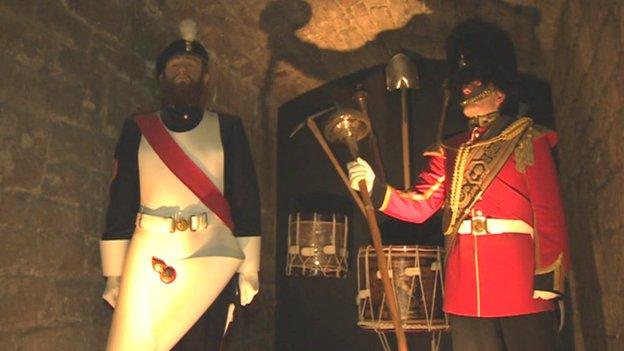Memorial to 1,100 lost Royal Welsh Fusiliers
- Published
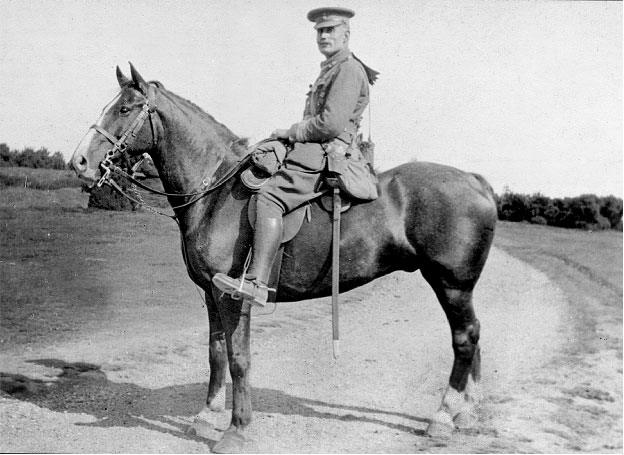
Pictured just before leaving for Belgium, Lt Col Henry "Hal" Osbert Samuel Cadogan was a large man and needed a sturdy reliable horse
A memorial is being dedicated to the hundreds of soldiers from the Royal Welsh Fusiliers who died in one of World War One's bloodiest battles.
The 1st Battalion was annihilated in 20 ferocious days of fighting in October 1914 after an attack turned to defence against German shelling.
More than 1,100 men were killed in the countryside around Ypres and families are in Belgium to mark the centenary.
A memorial will be unveiled near the village of Zandvoorde on Sunday.
There will also be ceremonies at Gheluvelt to mark the losses by the South Wales Borderers and the Household Cavalry.
The 1,100 men of the 1st Battalion had marched 120 miles to Ypres to join the effort to push the Germans out of Belgium.
But they were surprised by the strength of the enemy, swelled by volunteers, and after two days of bombardment were reduced to only 200.
The First Battle of Ypres marked a transition from fighting on the move to what would become trench warfare.
After reinforcements, a 400-strong battalion over the next two weeks faced heavy German artillery, attacks and incoming shrapnel into the trenches near Zandvoorde.
More than 275 were killed and 50 wounded taken prisoner on 30 October 1914.
The next morning, only 86 men were left standing. The battle continued for a few more weeks, while the 1st battalion was reformed.
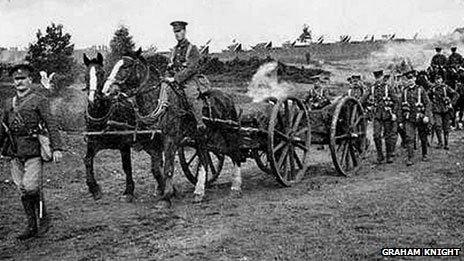
In training before they left for war
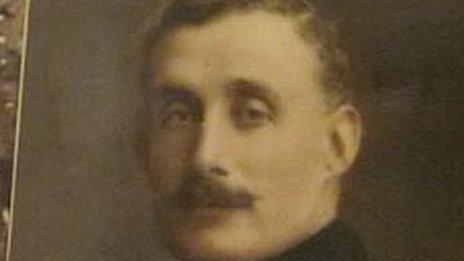
Lt Col Henry Cadogan was shot and killed on 30 October
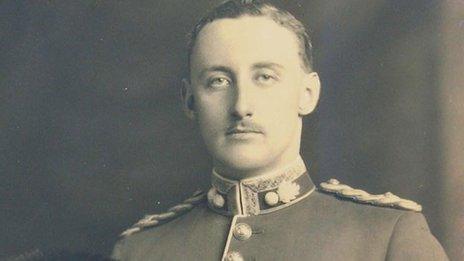
Edward Cadogan was six when his father was killed but went on to be a colonel in the Royal Welsh Fusiliers
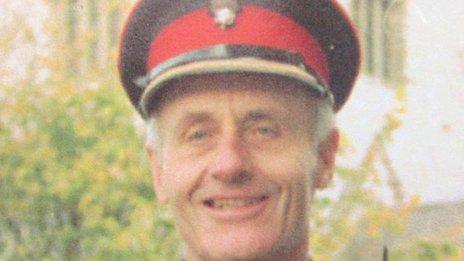
Henry Cadogan also became a colonel and will join family and other descendants in Belgium on Sunday
One of those remembered is Lt Col Henry "Hal" Osbert Samuel Cadogan, who commanded the 1st Battalion. He was a career officer with service in India and China and was drafted in from peacetime Malta when war was declared.
His grandson retired Colonel Henry Cadogan, from Wrexham, himself a veteran of the regiment, wrote a book about his life.
"More shells were fired in those weeks than in the whole of the Boer War," he said.
"They would never have seen anything like it. But it was important because they stopped the Germans by the skin of their teeth getting through to the coast - it would have been the end of the war."
"These were the last of the Old Contemptibles - the regular Army that was available [a nickname from the Kaiser's supposed comment about Britain's "contemptible little army"]
"Afterwards, they relied on recruitment back home."

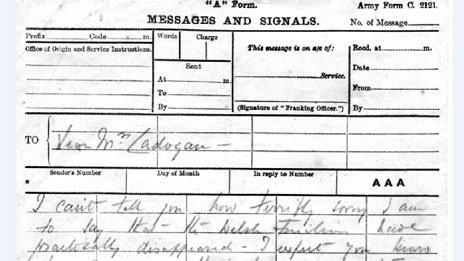
This message told of the scale of losses
Message to Eve Cadogan from the brigadier, shortly before her husband was killed.
"I can't tell you how terribly sorry I am to say that the Welsh Fusiliers have practically disappeared. I expect you know how enormous these losses were lately both on officers and men - up to yesterday morning there were five officers, 450 others. Your husband, [Claud] Dooner, Poole and two boys were all [that was] left of the officers.

Lt Col Cadogan was shot dead on 30 October as he tried to reach a younger officer, Claud Doomer, with the battalion surrounded at Zandvoorde.
"There are no letters from the front to my grandmother but she received a message in pencil from the brigadier," said Col Cadogan.
"He wrote that the Royal Welsh Fusiliers had 'practically disappeared.' It's frightful. That's why it's very important we remember."
- Published20 September 2014
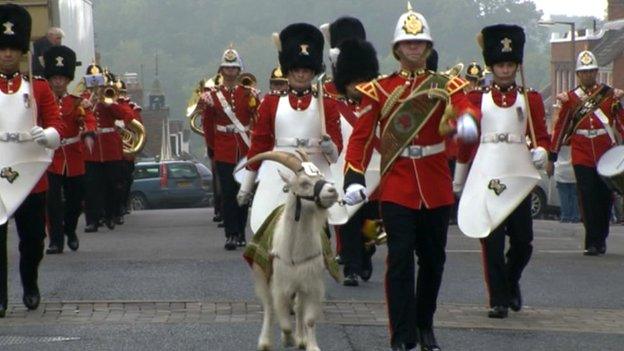
- Published2 June 2014
